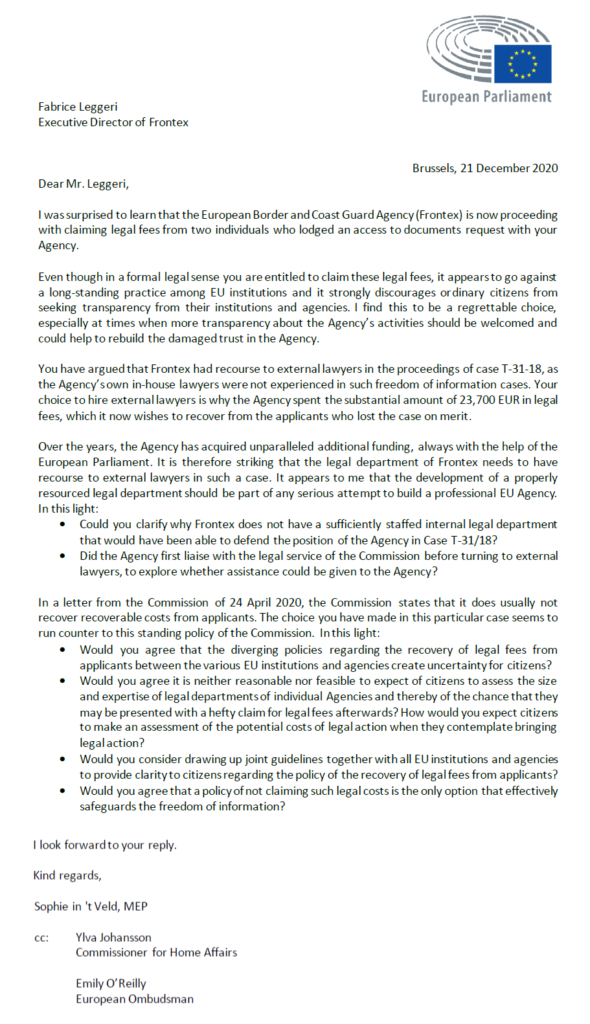Non-binding resolution accompanying decision to postpone discharge of Frontex’ 2019 budget expresses concern about potential ‘chilling effect’.

On 28 April, the European Parliament passed a decision and resolution regarding the discharge in respect of Frontex’ budget for the financial year 2019. The Parliament decided not to grant discharge for the moment, pending a long list of concerns that have recently surfaced about the EU’s most highly-funded agency, including in the area of fundamental rights protection, financial prudence, and allegations of organisational abuses.
In a lengthy and strong-worded resolution, ‘deploring’, ‘expressing great concern’, ‘regretting’, ‘highlighting’, and ‘finding disconcerting’ various misgivings, the Parliament also addresses Frontex’ controversial recent track record when it comes to the handling of its transparency obligations.
Regarding the recent Frontex v Semsrott and Izuzquiza case, the Parliament expresses ‘deep concern’ about the agency’s decision to recover legal fees worth over €23,700 from two activists who previously lost an access to documents case, noting that
charging civil society with excessively high legal fees has a chilling effect on civil society’s access to justice in the field of access to documents which is a fundamental right laid down in Article 42 of the Charter and undermines their right to an effective remedy under Article 47 of the Charter.
In December 2020, senior MEP Sophie in ‘t Veld had already expressed her dismay with Frontex’ court action in written questions submitted to Frontex’ Executive Director Leggeri (see image), adding to the political pressure on the agency to change its course.
In March, the court already drastically reduced the amount Frontex sought to recover. The Parliament in its resolution now calls on Frontex to withdraw its claim altogether, now and in future access to documents cases.
The passage was reintroduced in the resolution after a similar amendment, advocated by transparency NGO Access Info Europe, was narrowly defeated in the Parliament’s Budget Committee with 15 against 14 votes.
Access Info Europe recently reiterated its position that public interest litigants in access to documents cases should be exempt from having to pay legal costs at all, its Director Helen Darbishire recently noting that the NGO is already highly dependent on pro bono work of law firms to carry out its strategic litigation activities at all.
In the same resolution the Parliament also notes that Frontex’ newly established document register “does not fulfil the legal requirements of Regulation (EC) No 1049/2001”. Under this law combined with treaty obligations, the European institutions, bodies, offices, and agencies, must place all documents held by them on a document register. It is highly unlikely that even a single one of them (including the Parliament) currently complies with this obligations.



